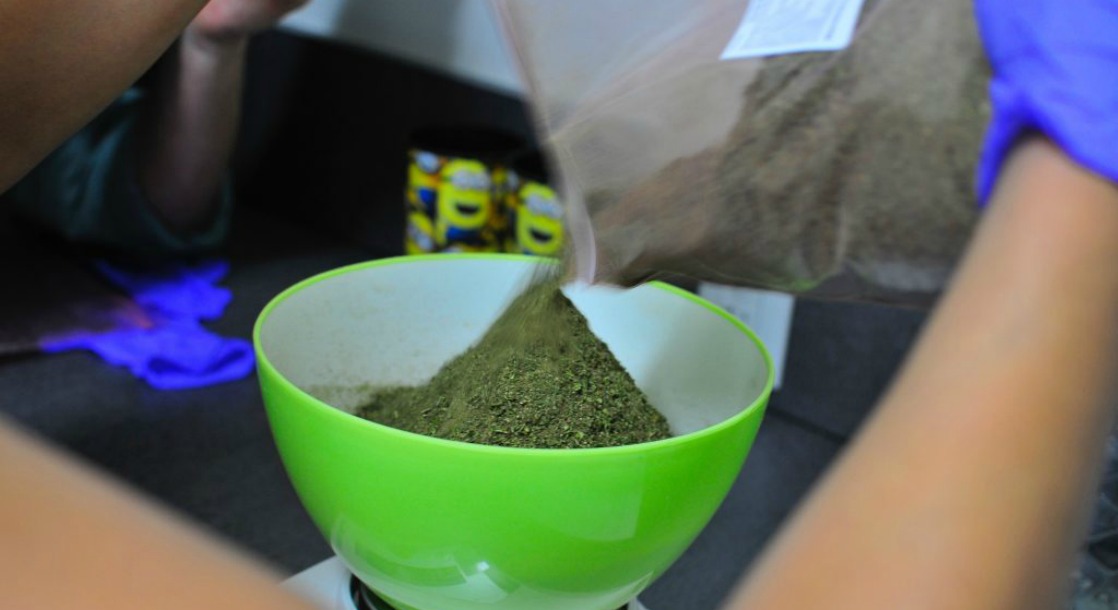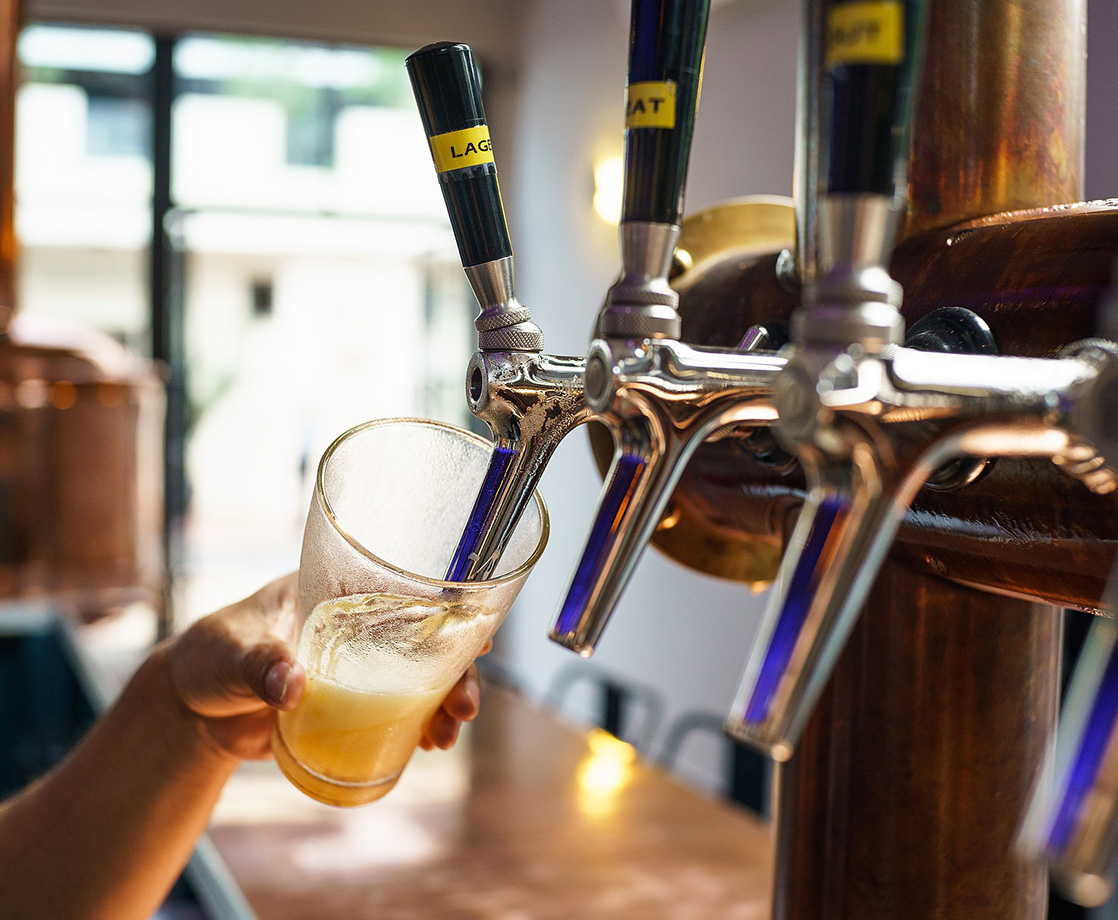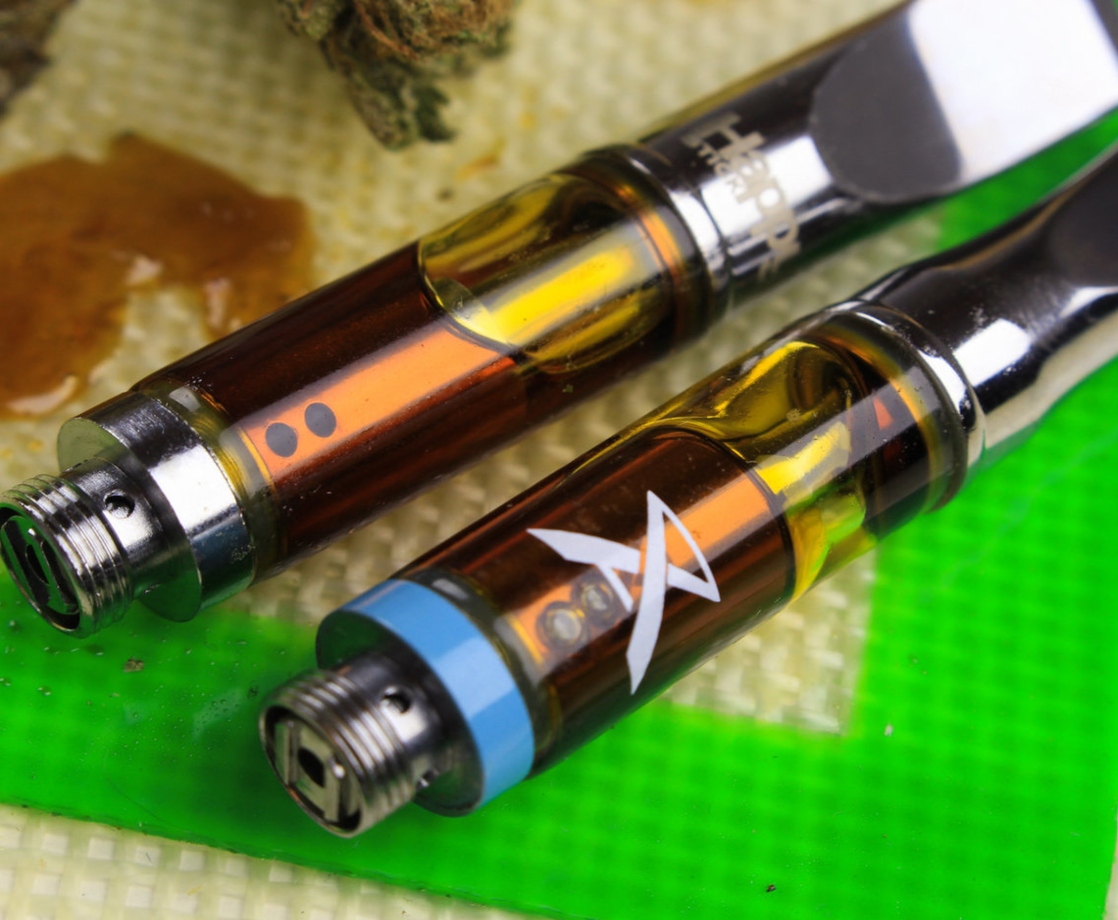In the classic stoner flick Half Baked, Dave Chappelle's custodian character gets his hand on an endless stash of free weed from a government sanctioned federal research facility. But while Chapelle grabbed bricks of Maui Wowie and other high-grade strains to sell on the streets of Manhattan, it turns out that the government’s real-life stash is actually full of low-grade shwag barely fit for toking, and the researchers tasked with studying it very unhappy about it.
“It didn’t resemble cannabis. It didn’t smell like cannabis,” physician Sue Sisley told PBS News Hour about the weed she received from the government program. Sisley is working with the Multidisciplinary Association for Psychedelic Studies (MAPS) in a groundbreaking study looking at the effects of cannabis on military veterans suffering from PTSD. But with the quality of cannabis supplied by the government program, their research is suffering greatly.
Government marijuana looks nothing like the real stuff. See for yourself. https://t.co/UKNSYwqPWQ pic.twitter.com/IbQv8p5NWu
— Washington Post (@washingtonpost) March 13, 2017
Since 1968, the federal government has only sanctioned one farm, at the University of Mississippi, to grow cannabis for clinical research. The farm, which you can see an aerial view of below, is run by the National Institute for Drug Abuse (NIDA) and is responsible for the stemmy, pale shake that Sisley and her team were sent. And while the Mississippi weed was touted at 13% THC, Sisley’s team tested the schwag and found that it barely hit 8%.
To get a cannabis expert’s opinion, The Washington Post asked professional marijuana critic Jake Browne’s opinion of the government goods. Needless to say, he was not impressed.
“That is, flat out, not a usable form of cannabis. In two decades of smoking weed, I've never seen anything that looks like that,” Browne said. “People typically smoke the flower of the plant, but here you can clearly see stems and leaves in there as well, parts that should be discarded. Inhaling that would be like eating an apple, including the seeds inside it and the branch it grew on.”
But not only is the NIDA weed barely recognizable, it also happens to be contaminated. During their testing, Sisley and her team found mold and other pathogens at levels much higher than most weed found in legal state dispensaries. For the MAPS team, that might be the most challenging aspect of the whole ordeal.
“Our biggest concern is patient safety,” Mike Van Dyke, chief of toxicology with the Colorado Department of Public Health and Environment, which is funding the MAPS-sponsored study on PTSD, told PBS. “The lack of a federal regulatory structure makes it a huge challenge. We don’t have all the information we’d like to have.”
It is still illegal for the group to get their buds from dispensaries in legal states, but Sisley isn’t ready to accept the NIDA samples and keep it moving. While the PTSD study will continue with the low quality and potentially unsafe “weed” provided by the government, Sisley has already teamed up with Arizona’s Scottsdale Research Institute on a government proposal that would allow them to grow their own, more potent weed.
“We waited 20 months to get going, and then we got this sub-optimal study drug,” she says. “The longer we allow this monopoly to continue, the more efficacy [of the] research will continue to be thwarted.”
When NIDA was reached for comment about their poor cultivation skills, a spokesman for the institute claimed that they would have better buds in the future.
“There has been some emerging interest from the research community for a wider variety of marijuana and marijuana products. … NIDA does plan on growing some additional marijuana this year and harvest some high THC material that will likely be above 13 percent THC.”
However, if this year’s harvest is any indication, the farmers in Mississippi will have to put in a whole lot of work before they can even come close to growing the high-grade cannabis available on the current market. Until then, don’t expect NIDA-sponsored studies to yield any optimal results.











